Passionate About Communication
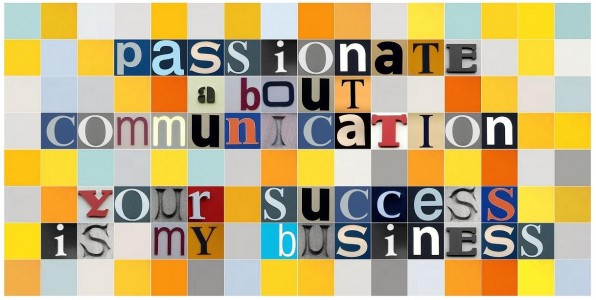
My Embarrassing Confession about the (Not So) Hidden Costs of Poor Communication
“You teach best what you most need to learn.” – Richard Bach
I have a confession. It’s a little embarrassing. I started my career at General Electric in a management training program (Information Systems Management Program or ISMP) and one day, Bob Goodman, one of the senior managers, called me into his office (although the trainees had access to senior management it was unusual to have a private one-on-one meeting).
I remember being nervous about the meeting. After some small talk Bob told me something I have NEVER forgotten.
He said, “Lisa, you are like a big ship, like a cruise liner, coming into port. You rock all of the other small ships and you don’t even realize it. We’d like to help you with that. We want to send you to some training.“
It turns out GE wanted to send me to a training course to improve my interpersonal communication skills! At the time I was mortified! I thought I was a good communicator. After all, I enjoyed public speaking. But now looking back, I realize I was struggling with many of the same communication issues that so many people face everyday.
I know from the thousands of questions that I’ve received from listeners of my very popular internet show and my clients from around the world that it doesn’t matter if you consider yourself an excellent communicator or if you are just starting out. It doesn’t matter if your 16, in your 20’s or 90. It doesn’t matter if you from the United States or from Africa. It doesn’t matter if you are just starting your career, if you are manager, or even a CEO of company.
And we all struggle in certain tricky situations.
In fact, just yesterday I received this email…”Right now, I need to deal with a very difficult person I work with…When my coworker comes up to me and lets me know she hates everything I’ve ever done I blank and just shrivel up inside.”
Some people know what to do, but in the stress and the emotion of the moment they blank because they haven’t practiced enough. Some people might be good at certain communication skills, like starting conversations with strangers, but struggle to politely end a conversation. Some people might be good at presenting a proposal to their boss, but have trouble keeping discussions from turning into arguments at home.
What I know with 100% certainty (from my work with thousands of individuals and hundreds of corporations) is that all us (individually or collectively as an organization) struggle from time to time. And in those times of stress, we want to maintain or repair a relationship, we need to ask…
“What do I say when…”
Unfortunately, we don’t get much formal education in communication skills. We often learn from our own parents and from our experiences. And unfortunately, sometimes we only realize we have a problem after we have significantly damaged a relationship. Many times I was called in after the damage had been done. (Enough damage to justify calling in an expensive expert. In some cases the cost of miscommunication was loss of life!)
I think it’s because we all communicate everyday, we think we know how to communicate. We think we don’t need any additional guidance. “What’s some expert or book going to tell me what I don’t already know?”
The problem is that often we just don’t know what we don’t know. (It’s interesting to me a that web designer told me the same thing recently, “Everyone thinks they understand how to be effective on the web because they interact on the web daily. I spend more and more time in meetings listening to unfounded suggestions. But that interaction, doesn’t make them an expert on what works best in what situations.”
Think about it.
- Do you know all the specific ways to shake hands that instill confidence and trustworthiness?
- Do you know the specific methods of introducing yourself that will form a first impression that leads to developing a strong relationship (and the ways of introduction that limit your chances of ever building a relationship).
- Do you know how our brains are wired to cause likeability?
- Do you know that how to move beyond collecting friends or fans to sincerely and effectively engage with people, to create significant and meaningful collaborations?
- Do you know what steps you need to take to draw out your inner charisma?
- Do you know how to effectively deliver bad news?
- Do you know how to receive and give feedback (and no, it’s not using the old sandwich approach -positive, negative, positive- which by the way doesn’t work anymore)….
Anyway, back to my story…when I was sitting in Bob’s office, I honestly thought I was an excellent communicator and I went to the training as requested.
The first day started with each of us taking a personality/communication skills inventory. The man sitting next to me seemed very unhappy – a curmudgeon. He explained that he worked for the post office and that every year there is a survey among the employees and the managers that have the lowest scores are forced to come to this course–“charm school” he called it.
We finished scoring the inventory–adding up points for different measures. After hearing his story, I couldn’t help myself. I was dying to see the personality scores for this guy from the post office, so I peeked over to see his scores. What I noticed immediately was that our scores, for each and every category, were exactly the same! I even double-checked and triple checked his scores against mine.
It was one of the memorable moments that I’ll never forget. (I can still see the image of the scoring sheet in my head!)
It was in that very moment that I realized I needed to change. I promised myself that I would do better. I promised myself that I would commit myself to reading, practicing, and improving my communication skills.
I learned a lot in the course but that was just the very beginning of my journey. (If you skipped the initial quote at the beginning –go back an re-read it. Now you know why I picked that quote!)
Finding My Passion
After finishing the initial two-year management training program at GE, I was asked to join GE’s Corporate audit staff – it’s a well-known accelerated leadership development program.
I had the opportunity to work at several different GE businesses as a member of consulting teams as an information systems specialist* (*my undergraduate degree is in Computer Systems) working along with other specialists from finance and manufacturing. This is when I first noticed that the root cause of many organization issues stemmed from problems in communication.
I was convinced (and still am) that a practical understanding of organizational, interpersonal and intercultural communication was critical to professional and personal success. So I worked toward a master’s degree in all three areas. GE even paid for most of my studies! (Thanks GE!)
On the personal side of things…this was also about the time that I met John. John had become HIV+ from infected blood products yet was never negative or sour about his situation. In fact, John was dying from a horrible disease, yet he was the most alive person that I have ever met. That’s why I eventually married him.
He was the kind of person that naturally attracts other people–like a magnet. Maybe you’ve met someone like this. His passion and enthusiasm for life was contagious and he inspired me to find my passion and share it with others.
During those years I received not only a formal education from the university and from my work at GE. I was also learning how to communicate deep intimate and difficult topics with my husband. I was learning how to communicate with medical staff who often were insensitive and uneducated (remember this was when there was still much social stigma associated with patients who were infected with AIDS.) I was learning how to publicly communicate about sensitive/difficult topics with high school kids and with the media. (John and I felt strongly we needed to speak up.)
Who I am Now
Since John’s death in 1995, I became a full-time professional speaker, author, host, and much more recently a new mom. My first stab at writing was a chapter in a book about dealing with death of a loved one.
Later I expanded my communication career by working as a professional speaker and trainer working with technical people like engineers, doctors, and scientists, to help them with communication issues.
For example, I delivered numerous workshops and seminars for medical and scientific professionals at prestigious institutions like Johns Hopkins, Harvard, Stanford, University of Pennsylvania. I became an expert for experts!
But, I wanted to expand my reach. I wanted to help more people, not just doctors, but also lawyers, teachers, project manager, preachers, taxi drivers, customer service agents, real estate agents, I know it sounds ambitious, but I sincerely wanted to help everyone.
I became the host of a weekly iTunes podcast [The Public Speaker], a communication audio tips program [produced by Macmillan]. Over the few years has become very popular with over 200,000 monthly downloads. The show also earned nominations for the 2009 and 2010 PodCast awards. As a result of the success of the show, I was asked to write a book on interviewing skills [Macmillan Audio].
As a result of all of this, I have met thousands of people, many of whom are smart, passionate leaders interestingly for most of whom good communication is critical (Lawyers, doctors, project managers, preachers, teachers, taxi drivers, customer service agents, human resources professionals, professional speakers, authors, these are the people that typically listen to the show).
They wrote to me and continue to write to sharing their struggles with communication. They shared with me the obstacles they are facing. When I responded with concrete tips, and they wrote me back telling me of their successes.
I realized I was talking about issues that not many other people were talking about. The traffic to the Macmillan website was evidence of that. And the shear number of people that were interacting and engaging me also let me know that I needed to create a guide.
What I heard from the listeners was that they were using the show as a guide and as motivation. On the way into work when dealing with a particularly important communication issue, they would listen to my podcast. But they wanted more. More details, more information, more stories, more resources and action steps to learn more.
Schools teach reading and writing but somehow effective communication is NOT taught. I think that’s why Win Friends and Influence People by Dale Carnegie became the highest selling book over the years.
Unfortunately today, our communication is far more complex. We need more strategies, we need help with not only in-person communication skills because that will always remain important, but we also need help with new forms of communication, new channels of communication.
How can we effectively use LinkedIn and Facebook to move beyond collecting friends? How to we use the new collaborative web to truly communicate. I really hate that an entire crop of so called “social media” emerged on the scene. I thought it was silly. After all, we don’t have fax communication experts, we don’t have pager communication experts, or phone communication experts. Those are just channels or methods of communication.
We need experts in communication that can tell us how to communicate effectively.
We need to know what works and what doesn’t from a communication perspective. What I think is needed is a resource that takes communication theory applies it to practical, everyday situations that we all face, and give step-by-step directions on how to achieve results and success.
That’s what my new book is about.
It’s a modern guide to COMPELLING communication. It’s the step-by-step guide to help individuals and organizations:
1. Capture Attention
2. Deepen Connections
3. Smooth Out Difficulties
4. Influence Action
I wanted to share my story–partly as introduction, partly as confession, and hopefully, partly as motivation for those who struggle with these very important people skills.
I think that Bob (and others who knew me early in my career) would be very surprised to learn that I am now The Public Speaker. I sincerely hopeful that my new book will have a worldwide impact.
In fact, I’m plan to use a large portion of the proceeds of the sale of this book to ensure that effective communication is taught to children, teen, and adults, along with reading, writing and arithmetic.
My tag line for my business has always been,
“Passionate about communication, your success is my business.”
I hope you now understand it’s not just a tag line, its really what I believe in.
(And yes, I agree with Richard Bach!)
Lisa B. Marshall / The Public Speaker
Keywords:
Keynote Speaker, Motivational Speaker, Marketing Consultant, Compelling Communication, Public Speaking, Networking
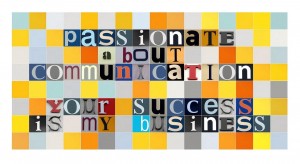
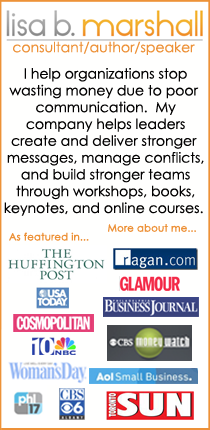




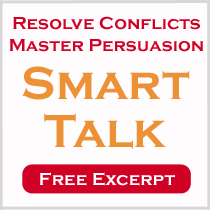
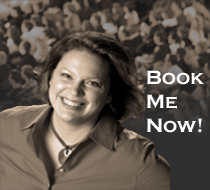

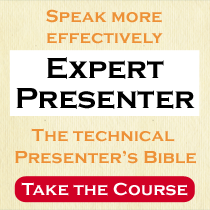


There are 3 comments .